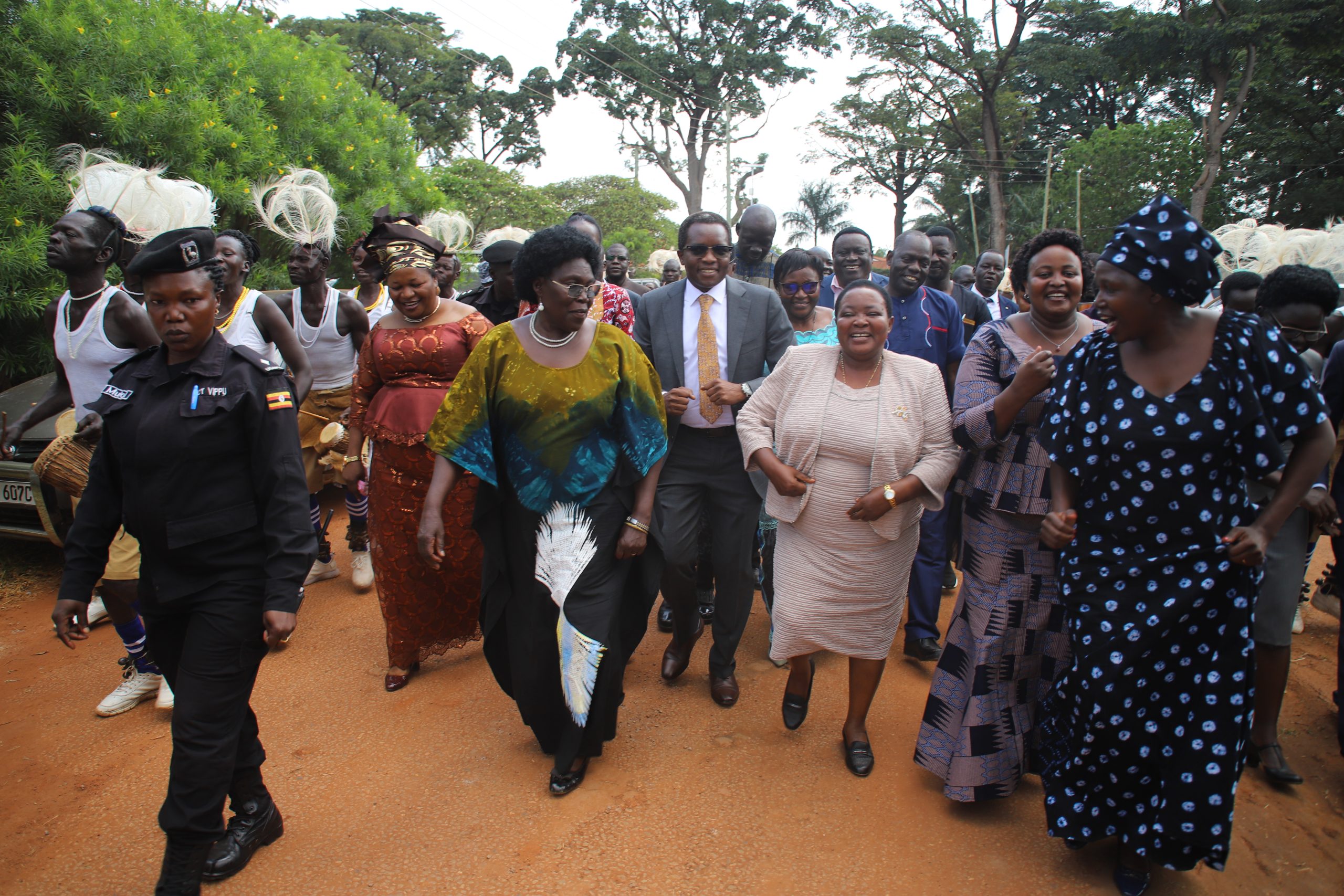By Ismael Kasooha
GULU
The Prime Minister Rt. Hon. Nabbanja Robinah has assured the people in Northern Uganda that the government will prioritize household income improvement in the forthcoming NUSAF4 programme.
Nabbanja said that Northern Uganda continues to endure the scars of war but stressed that the upcoming NUSAF4 will not do any other thing but focus on household income improvement to support communities in the region.
“Northern Uganda endured the ravages of war and scars are still very visible, as explained by the paramount chief. However, we are in the process of introducing NUSAF 4. The President guided us, and he told us only to focus on the livelihoods of the people,” the Premier explained.
Nabbanja told the people in Northern Uganda that “We are not going to construct schools, health centers among others but we shall inject money into our people. The President has insisted that NUSAF 4 should focus on intensive agriculture if we are to move our people from low income status to the money economy.”
The Prime Minister made the remarks while presiding over the homecoming of the new State Minister for Northern Uganda, Dr. Kenneth Omona at the regional offices in Gulu City on Friday.
The Acholi Paramount Chief His Highness David Onen Acana asked the government to consider supporting a group of men he claimed are victims of sexual violence perpetuated during the war in the region between 1987 to 1992.
“It is disheartening to believe that at this time in our lives, we still have people who have been raped during the war in Northern Uganda, especially in the Acholi sub region, and these are male victims who are still living in very wanting conditions,” he said.
Acana noted that most of these people are unable to take care of their medical bills while their conditions deteriorate day-after Day.
He said that these people cannot work because they spend most of their time laying down.
“We appreciate everything the government is doing for the people of Northern Uganda. The cultural institutions have been underutilized and are weak in that they don’t have resources to implement their work,” he said.
He asked the government to establish a fund in the office of the Prime Minister that can be used by the cultural institutions to implement activities in their areas.
Acana noted that mental health has become a serious problem in the community but this can be addressed with the available resources and asked for support to war victims like children born in captivity and their mothers.
The cultural leader appealed to the government to ensure that there is a massive tree planting campaign to mitigate effects of environmental degradation.
Acana welcomed Dr. Omona to Northern Uganda and asked him to address the issues that affect the people in Northern Uganda.
In his remarks Dr. Kenneth Omona said that they are declaring war against poverty in Northern Uganda and appealed to leaders at all levels to be change agents in the struggle.
“We are declaring war against poverty in northern Uganda as leaders we have to be exemplary to the people we lead. Wherever we go let us spread the gospel of wealth creation and stop lamenting,” he said.
Anthony Akol, the Member of Parliament representing Kilak North Constituency who spoke on behalf of all legislators from Acholi sub region asked the government to come up with an intervention that will consider the villages not the parish.
“Our parishes are very huge for the common person to benefit from the government programme of Parish Development Model (PDM). We request the government to have a Village Development model (VDM) in Northern Uganda as an affirmative action,” said Akol.
The leaders asked for tractors so that people can engage in commercial agriculture to increase production and productivity.
Dr. Omona’s homecoming was graced by the Chief Justice of Uganda his Lordship Alfonse Owiny Dollo, the Government Chief Whip Dennis Hamson Obua, State Minister for Education in charge sports Peter Ogwang, Members of Parliament from Acholi and Lango sub regions, LC V chairpersons, Resident District and City Commissioners, local leaders among others.
The ceremony was characterized by traditional dances from several districts and sole artists.
End





